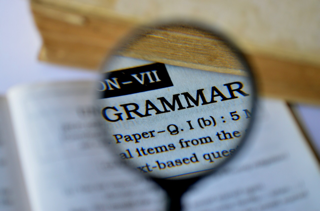 The term ‘modal verb’ often causes confusion. Students wonder what modal verbs are and why they don’t know about them. In fact, if you speak any English, the chances are high that you use modal verbs all the time; you just didn’t realise they had a special name!
The term ‘modal verb’ often causes confusion. Students wonder what modal verbs are and why they don’t know about them. In fact, if you speak any English, the chances are high that you use modal verbs all the time; you just didn’t realise they had a special name!
As modal verbs are a group of auxiliary verbs, first we need to understand what auxiliary verbs are. English uses auxiliary verbs to add meaning to other verbs, largely because our verb forms don’t change very much so we need to use other words to make the tenses work. The most common auxiliary verbs are be, do and have.
For example, to form the present continuous tense of a verb like cook, we need to use the verb to be:
I am cooking tonight.
Or to form the present perfect of walk, we need to use the verb to have:
I have finished my work for the day.
And to make questions, negatives or emphatic forms of other verbs, we use the verb to do:
Do you like fruit? – I didn’t go to work today. – Please do sit down.
So how about those modal verbs?
Modal verbs such as will, shall, would, should, can, could, may, might, must and ought add various meanings to other verbs. Those meanings are usually to do with certainty/uncertainty or obligation/permission. Here are some examples:
We must take off our shoes before we go inside.
I ought to finish my homework before I go out.
I may go to the party or I might stay at home.
Can you swim?
I should write more neatly.
There are different categories of modal verbs dealing with certainty and uncertainty, obligation and permission. There is also a little overlapping; for example, the modal verb may can be used to indicate some uncertainty (I may be at the game but I may not) and also has a completely different sense denoting permission (when you have finished your lesson you may go out for a break). What’s more, the grammar rules around modal verbs are a little different from the rules for other verbs.
Over the next few Exploring English posts we will delve a little deeper into modal verbs. Being able to use these verbs accurately and confidently helps us to express ourselves precisely and to understand the nuances of other people’s writing and speech.
Do you have questions about modal verbs? Comment below or contact me on social media if you do!
*If you are looking for a comprehensive and up-to-date English grammar book, this is the one I use and recommend.